This course combines lectures on theory and concepts with significant time practicing statistical tools using both the ctmmweb and ctmm (in R) software packages. For each analysis topic, there will be a core module and an advanced module. The core modules will use the ctmmweb software package, which provides a point-and-click graphical user interface to the full range of methods covered by the course. Each core module will be paired with a more in-depth advanced module that covers nuances and extensions of the focal analysis. Advanced modules will be conducted using the command-line ctmm package for R. With the core modules and ctmmweb, students will learn a rich and immediately accessible toolkit, while the advanced modules and ctmm are intended to provide a pathway to more flexible and sophisticated analyses that students can follow over the longer term as their skills develop. The course concludes with a 2-day project session where participants work independently to conduct a full analysis of either their own or an instructor-supplied tracking dataset, and then present their results.
This course covers:
- Using Movebank.org to store and manage tracking data
- Importing data, visual diagnostics, and outlier identification
- Movement model fitting via maximum likelihood
- AIC-based selection of movement models
- Quantifying and modeling telemetry error
- Home range analysis using autocorrelated kernel density estimation
- Home range overlap analysis with the Bhattacharya coefficient
- Occurrence area and trajectory estimation via time-series kriging
- Simulation of trajectories conditional on tracking data
- Scale-free estimation of speed and distance traveled
- Linking questions, analyses, and studying design
Software and Programs
All core-module exercises and some lectures will be performed in ctmmweb, while all advanced-module exercises and some lectures will be performed in ctmm and R via the user user-friendly R interface RStudio. Pre-course work will be required for all participants not familiar with the basics of R.
Required exercises for R preparation work will be emailed to participants at least one month prior to the course. All participants must have a basic familiarity working in the R environment.

